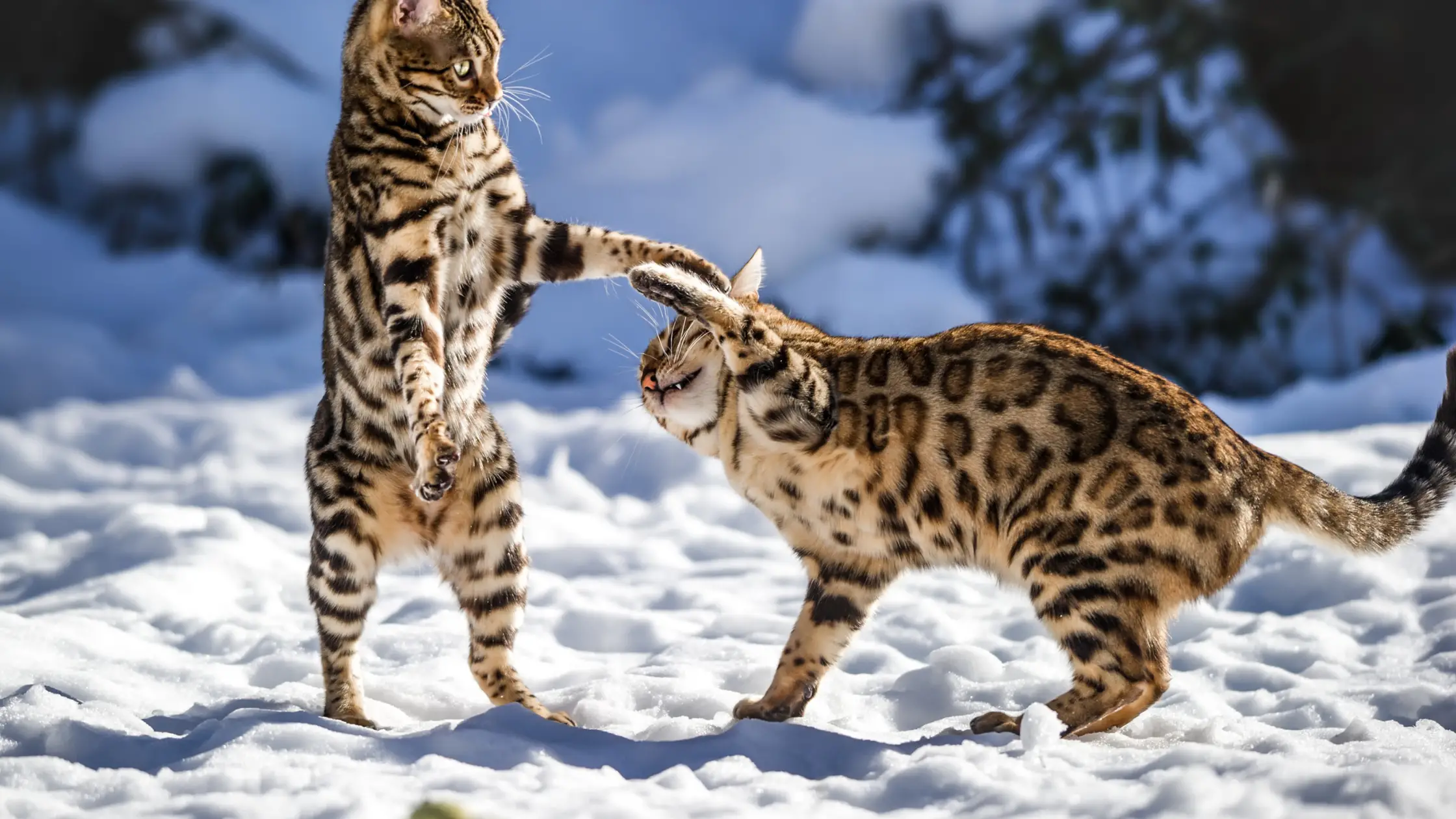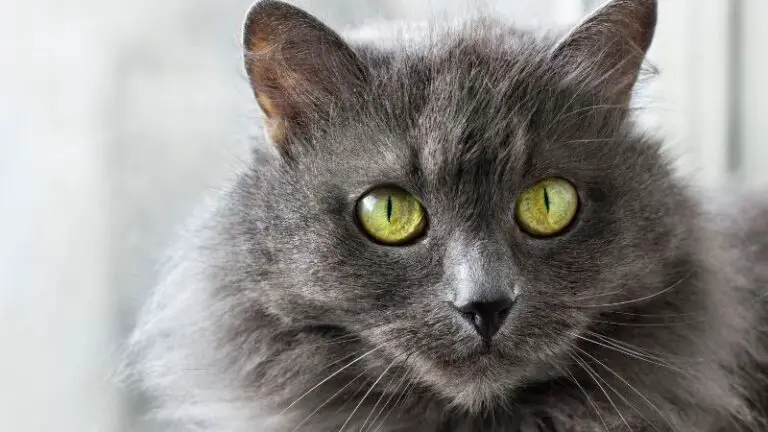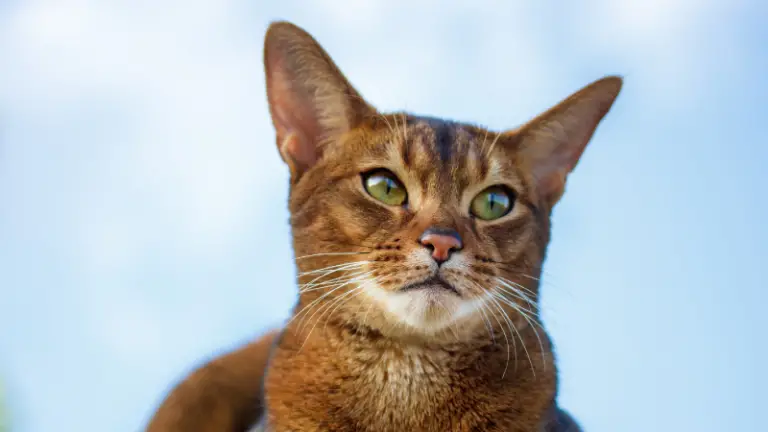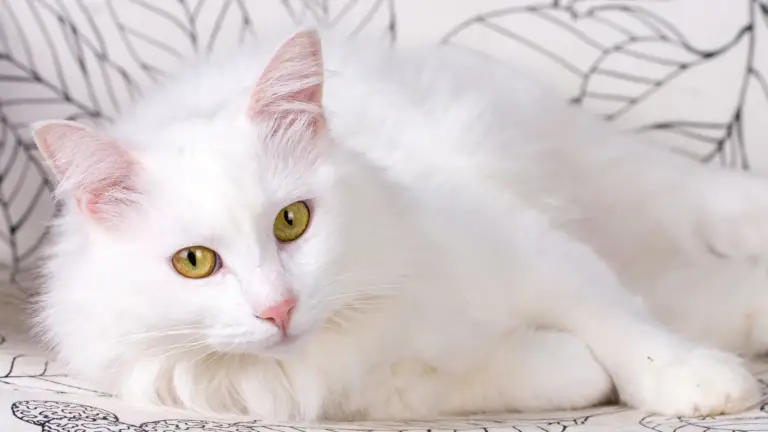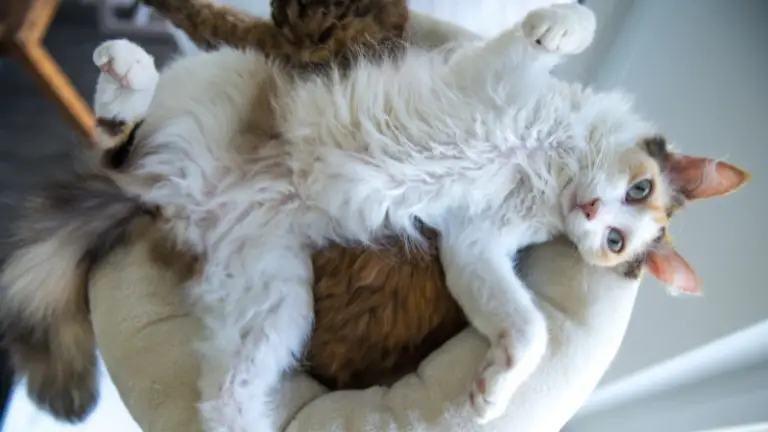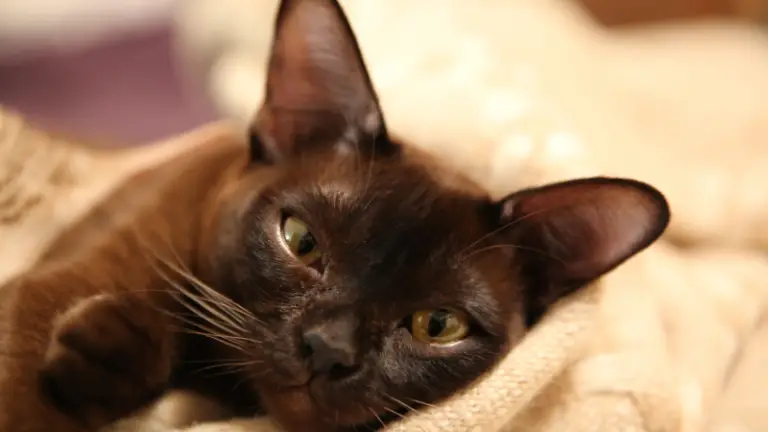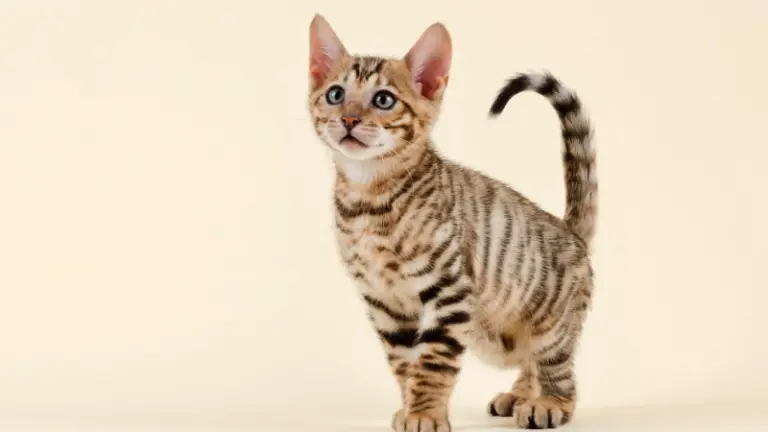WHY ARE BENGAL CATS ILLEGAL? [WHERE YOU CAN OWN THEM IN 2023]
Why are Bengal cats illegal? Bengals cats descend from wild cats, and despite the many generations between these cats as we know them now and their wild ancestors, they are still considered somewhat dangerous.
Bengal cats are not illegal in most cases but require special permits in some U.S. States or countries. Some countries may have specific regulations regarding importing or owning exotic cat breeds, including Bengal cats, so it’s best to check the local laws.
Let’s know more about where you can own a Bengal Cat.
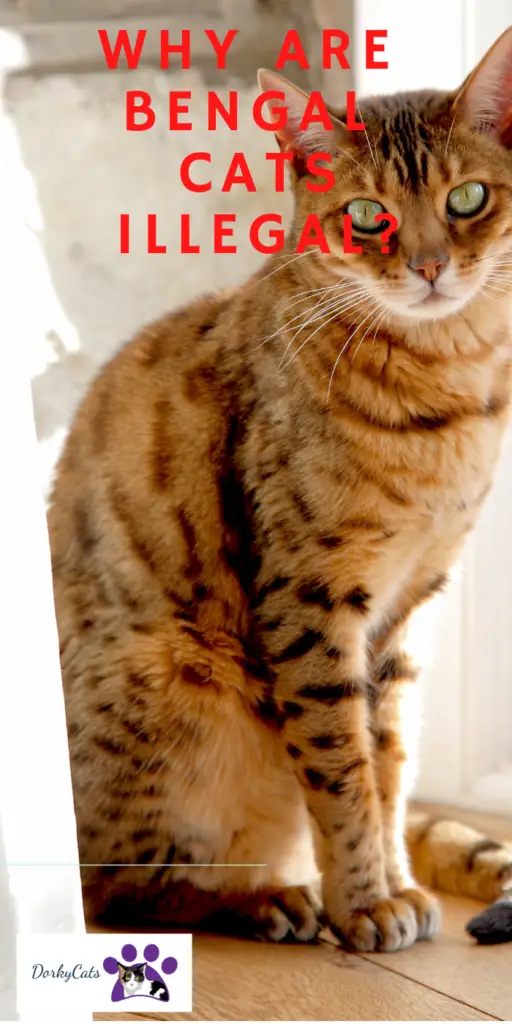
WHY ARE BENGAL CATS ILLEGAL?
Bengal cats are not universally illegal, but there are some places where owning a Bengal cat is restricted or regulated.
Here are some of the reasons behind it:
1. NEW BREED
One reason for this may be that Bengal cats are a relatively new breed created by breeding an Asian leopard cat (ALC) with a domestic cat. This has led to concerns that the breed may still carry specific wild characteristics or instincts.
2. WILD HERITAGE
Another reason is that due to their wild heritage, specific laws of wild animal regulation like animal welfare and ownership permit are enforced to ensure that Bengal cats are taken care of by suitable and responsible individuals.
Some states or cities may have laws or regulations that prohibit or restrict ownership of wild animals, including Bengal cats, to ensure the safety of the animals and the public.
3. LEVEL OF ACTIVITY
Additionally, Bengal cats are known for being quite active, adventurous, and potentially destructive, so they may not be suitable pets for all individuals. They require a lot of care and attention.
And the owners need to make sure that they understand the responsibility of owning a Bengal cat and have a suitable living environment.
In conclusion, Bengal cats are not illegal everywhere, but some places may have laws or regulations that restrict or prohibit ownership of them. Therefore, owners must be aware of local laws and regulations and be prepared to provide proper care and housing for these cats.
Here are some areas that require a permit or that forbid people from adopting Bengal cats:
| Country/State | Allows Bengal Cats? |
|---|---|
| Alaska | Require a permit (must be four generations away from the Asian Leopard Cats) |
| Connecticut | Bengals have been banned since 1996 |
| Delaware | Require a permit |
| Hawaii | Bengals are banned |
| Indiana | Require permit (must be a 4th generation) |
| Iowa | Require permit (must be a 4th generation) |
| Massachusetts | Bengal cats require a permit |
| Nevada | No regulations |
| Alabama | No regulations |
| Wisconsin | No regulations |
| North Carolina | No regulations |
| Missouri | No regulations |
| New York | Bengal cats require a permit ( must be 5th generation living in captivity) |
| Georgia | Permit required |
| Colorado | Permit required ( must be 5th generation living in captivity) |
| California | Allowed |
| Australia | Permit required ( must be 5th generation living in captivity) |
| U.K. | Allowed |
| Europe | Allowed ( must be 5th generation living in captivity) |
Here are some references for your consultation:
Connecticut – Subsequently the legislature passed PA 96-243 which (1) explicitly banned the importation of Bengal cats effective June 6, 1996 and (2) exempting certain existing Bengal cat owners from the prohibition against possessing the cats. To be exempt cat owners must (1) register their cats with the Department of Agriculture by October 1, 1996 and (2) certify, through an internationally recognized breeding association, that their cats are without wild parentage for at least four generations. The importation ban is not limited to importation from foreign countries.
Cga.ct.gov
ARE BENGAL CATS DANGEROUS?
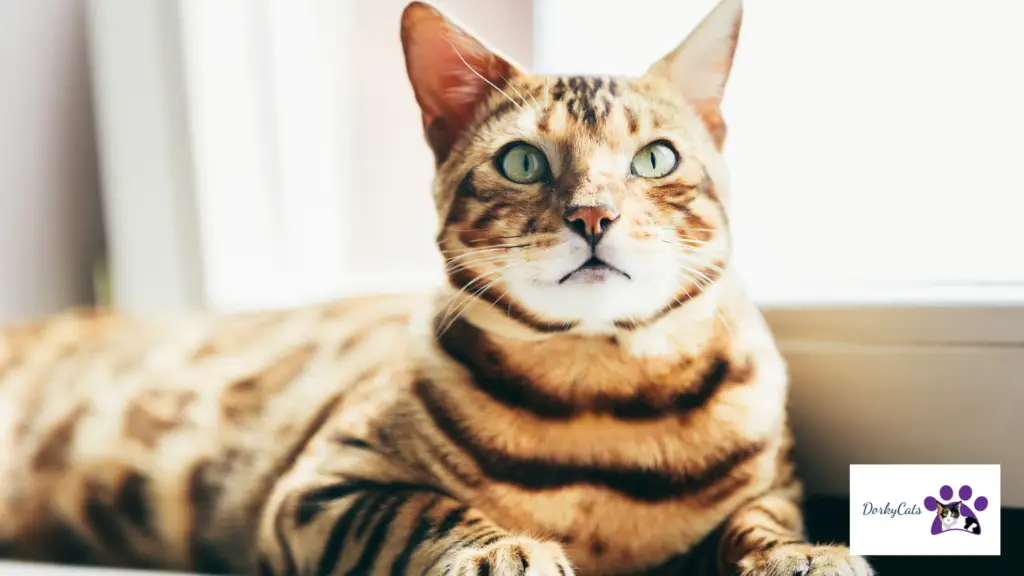
Bengal cats are not inherently dangerous, but as with any animal, their behavior can depend on their temperament, upbringing, and training.
Bengal cats are known for being active and playful and can be pretty intense and agile. However, they are also known for being very curious and may be prone to getting into things they shouldn’t.
These cats have a wild heritage and might be prone to exhibit specific wild behavior like climbing high, scratching, and hunting small animals.
However, when they are raised and socialized correctly and given the right environment, they can make loving and affectionate pets. Like all cats, they need to be trained, socialized, and provided with proper care, including appropriate food, veterinary care, and suitable living space.
It is essential for anyone considering getting a Bengal cat to be aware of their unique characteristics and needs and to be prepared to provide them with a suitable living environment and the necessary care.
WHY ARE BENGAL CATS ILLEGAL IN NEW YORK?
Bengal cats are not illegal in New York State, but there are specific laws and regulations regarding the possession of wild animals, which include Bengal cats. You can have a Bengal cat if it is five generations away from the wild ancestor.
New York State’s Department of Environmental Conservation (DEC) has regulations that govern the possession of wild animals that would apply to Bengal cats. These regulations may require owners to obtain permits or to meet certain conditions to possess a Bengal cat.
ARE BENGAL CATS ILLEGAL IN THE UK?
Bengal cats are not illegal in the United Kingdom, but certain regulations regarding their possession may exist.
The Bengal cat is recognized as a domestic cat breed by the Governing Council of the Cat Fancy (GCCF) in the United Kingdom, and no specific law prohibits their ownership.
However, The Animal Welfare (Licensing of Activities Involving Animals) (England) Regulations 2018 put some cat breeding regulations in place.
The legislation sets out minimum standards that cat breeders must meet, including providing adequate food, water, and veterinary care; ensuring that cats have suitable living conditions; and preventing the breeding of cats that are likely to suffer from congenital or hereditary disorders.
WHY ARE BENGAL CATS ILLEGAL IN SINGAPORE?
Bengal cats are illegal in Singapore because they are considered exotic under the country’s Animal and Birds Act. The act regulates the import and keeping of exotic and hybrid animals as pets, and Bengal cats fall under this category.
The act aims to prevent the spread of diseases that these animals may carry and to ensure public health and safety.
Bengal cats are considered a potential threat to native wildlife and ecosystems, and their ownership is restricted to licensed breeders and research institutions. People found keeping Bengal cats as pets in Singapore may face penalties, including fines and imprisonment.
However, due to recent regulations changes, it is possible to own Bengal cats if they are five generations away from the wild ancestor.
WHY ARE BENGAL CATS EXPENSIVE?
![WHY ARE BENGAL CATS ILLEGAL? [WHERE YOU CAN OWN THEM IN 2023]](https://dorkycats.com/wp-content/uploads/2023/01/Blogging-Tips-LinkedIn-Post-Header-33-1024x576.png)
Bengal cats are considered expensive for several reasons:
- Breeding: Bengal cats are a hybrid breed that results from breeding an Asian leopard cat with a domestic cat. This process is time-consuming and expensive, as it involves carefully selecting and breeding specific cats to produce offspring with desired traits.
- Popularity: Bengal cats are famous, and their demand is high. This drives up the price as breeders can charge more for these cats.
- Quality: Bengal cats with a more exotic appearance and a higher percentage of wild blood are considered more desirable and are, therefore, more expensive.
- Maintenance: Bengal cats require more maintenance than other breeds due to their playful and curious nature. They need plenty of toys and climbing opportunities to keep them entertained and prevent destructive behavior.
Overall, the cost of owning a Bengal cat can be higher than other breeds due to the initial purchase price and the ongoing costs of providing for their needs and providing them with veterinary care.
FREQUENTLY ASKED QUESTIONS
Are Bengal cats problematic?
It depends on the individual cat and its environment. Bengal cats, like all cats, can develop behavior problems if they are not properly socialized, exercised, or stimulated. However, with proper care and attention, Bengal cats can be affectionate and well-behaved.
Are Bengals safe pets?
Bengal cats can be safe pets if they are adequately cared for and socialized. However, as with any pet, there are certain things to keep in mind, such as their playful and curious nature and their potential to scratch and bite.
Therefore, owners should supervise their Bengal cats, provide them with plenty of toys and scratching posts, and train them to be well-behaved. It is also essential to provide them with regular veterinary care to ensure their overall health and well-being.
Will Bengal cats cuddle?
Yes, Bengal cats can cuddle. Bengal cats are known for their affectionate and playful nature, and many will seek out their owners for attention and affection.
However, as with any cat, the extent to which a Bengal cat will cuddle will depend on its individual personality and preferences.
For example, some Bengal cats may be more aloof and prefer their own space, while others may be more affectionate and enjoy cuddling with their owners.

